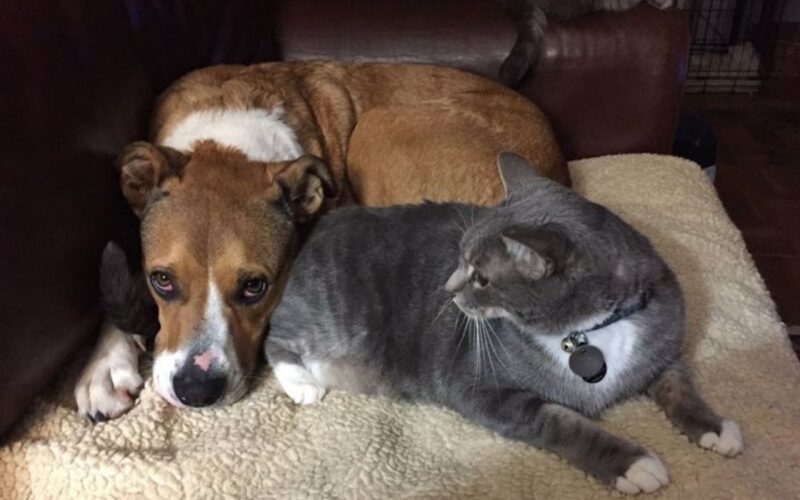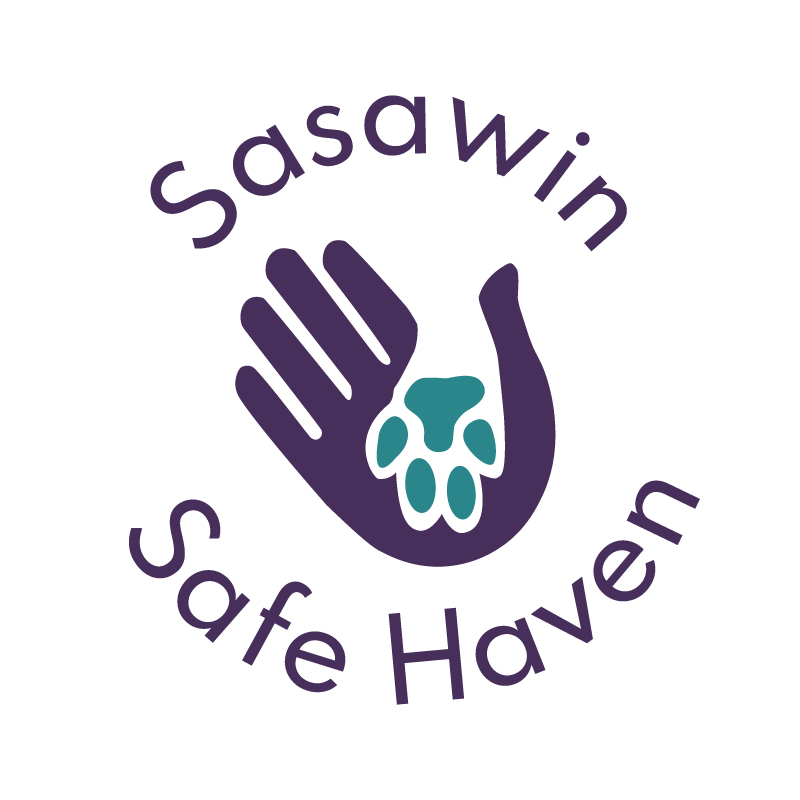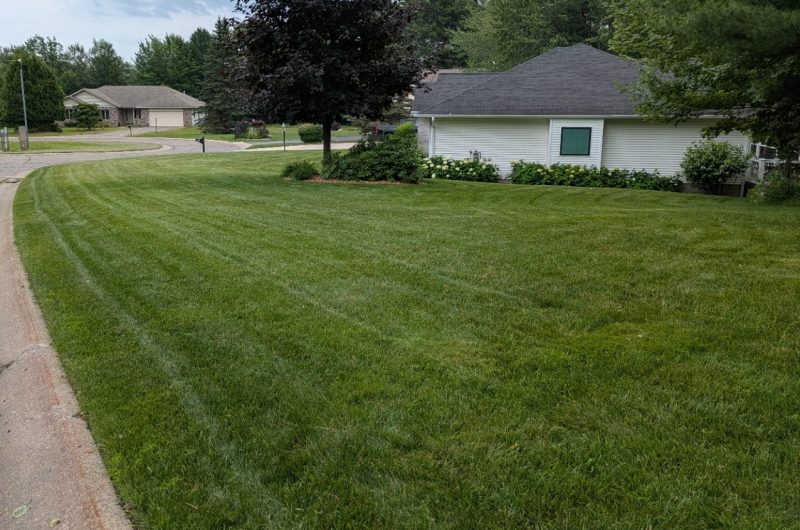Sasawin Safe Haven Helps Ensure Pets’ Safety for People Escaping Domestic Violence in Marquette, Alger Counties

You may be reading this with a beloved pet stretched at your feet or curled on your lap. Imagine how it would feel to choose between that animal’s safety and your own.
In Marquette and Alger Counties, the Sasawin Safe Haven http://sasawin.org program of the Women’s Center makes the choice between personal and pet safety unnecessary for people escaping domestic violence.
Every day, everywhere, domestic-violence survivors make that dreadful choice. More than half of those who escape domestic violence report that they delayed leaving abusive situations because they feared that abusers would harm family pets.
Sadly, that fear is well-founded. As many as 71 percent of domestic-violence survivors report that perpetrators threatened, abused, or killed family pets to silence survivors or to coerce them to remain in abusive situations.
Sasawin’s goal is “Saving The Whole Family.” Its mission is to provide refuge for companion animals of domestic-violence survivors and to preserve the relationship between those animals and their families. Helen Kahn, retired professor of the School of Clinical Sciences at Northern Michigan University and clinical psychologist for Great Lakes Recovery Centers, chairs Sasawin Safe Haven. She confirms that “there’s a huge association between domestic violence and animal cruelty. The survivor doesn’t want to leave the animal behind in the way of cruelty. We believe if we save the animals, we save the survivors.”
Caring for pets of domestic-violence survivors can be tricky. Most domestic-violence shelters – including the Women’s Center’s Harbor House – are not set up to house animals. Shelter staffs are concerned that some residents may have animal-related allergies or may fear dogs or cats. Sometimes there are zoning issues. Animals’ locations must be kept strictly confidential to protect them from the abusers.
Sasawin can provide confidential fostering, basic pet supplies, routine and emergency veterinary care, transportation and animal-behavior consultation, at no cost to survivors or foster families. Advocates at the Women’s Center and Harbor House can help clients locate pet-friendly, safe housing so survivors and pets can be reunited as soon as possible. Sasawin can cover rental-property pet deposits when needed.
Women’s Center volunteers began working on this issue in 2013, patterning the new program after Ahimsa House in Atlanta. Organizers chose the name Sasawin – the Anishinaabe word for safe place or nest – with guidance from the NMU Center for Native American Studies. From the beginning, Sasawin has partnered with the Upper Peninsula Animal Welfare Shelter and Northern Michigan University.
Sasawin accepted its first animals into care in 2015. It offers services to any domestic-violence survivor lodged at Harbor House or receiving Women’s Center outreach services for domestic and sexual violence. Like all Women’s Center services, Sasawin care is offered at no cost to the clients.
Funding sources for the Sasawin program include grants from local groups like Marquette Breakfast Rotary and Zonta, and national organizations and foundations like The Banfield Trust and The Elanco Foundation. Additional support comes from individual and business donations – monetary and in-kind – and from the sale of Sasawin t-shirts.
When a domestic-violence survivor contacts the Women’s Center – through its 24-hour crisis line or by other means, one of the Safety Planning Questions is, “Do you have pets?” If the answer is “yes,” the advocate asks, “Would you like to bring your pet with you for safe housing?” If pets are involved, the advocate contacts the Sasawin Animal Support Specialist. The Specialist calls the survivor, sets an appointment to receive the animal(s), and then contacts potential foster homes for placement. Survivors are asked to bring proof of the pets’ ownership and veterinary records, if they can safely reach those documents. Survivors meet with the Specialist and sign confidential permission paperwork for veterinary services and off-site animal-safe housing. Animals visit a Sasawin-connected veterinarian for exams and updates of vaccinations as soon as feasible. Urgent care is arranged immediately if needed. Sasawin volunteers take the animals to the veterinarian and off-site safe housing. If a suitable foster home is not immediately available, animals can be boarded at UPAWS on a short-term basis. As soon as possible, the animals are moved to foster care or a local boarding facility, where Sasawin funds cover the bills.
Sasawin Safe Haven’s most frequent service is preventive veterinary care. Often the chaos of a violent home makes it hard for survivors to manage pet care, and Sasawin works with several area veterinarians who donate or discount their services to meet those needs. In a few cases, Sasawin has funded treatment for pets who were harmed by abusers.
Safe foster homes for Sasawin animals are always needed. Pet food, supplies and veterinary services for animals in foster care are all paid for by Sasawin. Anyone interested in providing foster care for Sasawin animals can contact 906-225-1346, visit the Sasawin website at Sasawin.org, or message Sasawin Safe Haven on Facebook.
On average, Sasawin helps 16 animals each year, or about 80 pets since the program’s beginning. Its mission is to reunite all pets with their families, and, since 2015, Sasawin has accomplished that with 93 percent of the animals in its care. During that time, only five animals were surrendered by their owners and found new homes through UPAWS.
Eighty does not sound like a huge number, but it represents 80 animals taken out of harm’s way and many individuals and families whose escape from violence was made easier and who kept the emotional comfort of their pets because of the Women’s Center and Sasawin Safe Haven.
For more information about this program, or to volunteer or donate, please visit sasawin.org, find us on Facebook and Instagram, or call 906-225-1346.






